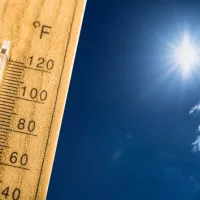
As the state prepares for the official start of summer June 20, temperatures are expected in the 90’s this weekend. Oregon Health Authority offers resources to help people protect themselves and their families against hazards of the warmer months.
“Seasonal hazards don’t have to be a bummer for your summer,” said Dean Sidelinger, M.D., M.S.Ed., health officer and state epidemiologist at OHA’s Public Health Division. “Making some changes that take into account the weather and activities that happen in the summer can prevent illnesses and injuries – and help ensure that you and your loved ones enjoy the season.”
Here are safety tips for protecting yourself and loved ones:
Drowning prevention
- Avoid alcohol when swimming or boating.
- Make sure young swimmers wear life jackets, and always supervise children in and near the water.
- Don’t swim alone or in bad weather.
- Be aware of swimming hazards in natural waters—lakes, rivers, streams, ocean—such as extremely cold temperatures, drop-offs, and underwater branches and rocks that create entanglement risks.
- Learn CPR and basic water rescue skills. It is important to know how to respond in an emergency without putting yourself at risk.
- Visit the Safe Kids websites on pool safety and boating safety.
Extreme heat
- Visit air-conditioned places, if possible.
- Use cool compresses, misting, and cool showers and baths, and never leave children in a parked car.
- Drink plenty of fluids, especially when working outside, avoid alcohol or liquids with large amounts of sugar, and limit caffeine intake. Learn more about preventing heat-related illnesses.
Sun exposure
- Limit sun exposure from 10 a.m. to 4 p.m., when ultraviolet (UV) rays are strongest.
- Wear sunscreen with a minimum of SPF 15; apply liberally to ears, scalp, lips, neck, tops of feet, and backs of hands at least 20 minutes before sun exposure. Reapply at least every two hours.
- Wear clothing with a tight weave or high-UPF rating.
- Wear wide-brimmed hats and sunglasses with UV protection and side panels.
- Take breaks in shaded areas.
Wildfires, wildfire smoke
- Avoid vigorous outdoor activity when wildfire smoke is in the air.
- Stay indoors as much as possible.
- Reduce outdoor activity time for children when wildfire smoke is in the air.
- If you have a central air system, purchase and install a MERV-13 or better filter before wildfire season; set your system to recycle or recirculate the air.
- Create a cleaner air space in at least one room in your home by purchasing an air filtration device or building your own do-it-yourself device with a box fan and HVAC filters.
- Reduce other sources of indoor smoke and dust. These can be burning cigarettes, candles, gas, propane, and wood-burning stoves and furnaces, and vacuuming.
- When driving, run your car’s air conditioner on the recirculate setting.
- Visit OregonSmoke.org (Spanish site, OregonHumo.org) to find the current air quality.
- If you have heart or lung disease or respiratory illnesses such as asthma, follow your health care provider’s advice about prevention and treatment of symptoms.
- Stay hydrated—drink plenty of water.
Mosquito-borne diseases (West Nile virus)
- Eliminate sources of standing water where mosquitoes breed, such as watering troughs and bird baths.
- Protect yourself during outdoor activities at dusk and dawn when mosquitoes are most active by using mosquito repellants containing DEET, oil of lemon eucalyptus or picaridin, and follow directions on the container.
- Wear long-sleeved shirts and long pants in mosquito-infested areas, as well as closed-toed shoes, and tuck pant legs into the tops of socks or boots. Consider using clothing treated with permethrin.
- Visit our website to learn more.
Tick-borne diseases (Lyme disease)
- Use Environmental Protection Agency (EPA)-registered insect repellents containing DEET, picaridin, IR3535, oil of lemon eucalyptus, para-menthane-diol (PMD), or 2-undecanone.
- Wear long-sleeved shirts, long pants and closed-toed shoes, and tuck pant legs into the tops of socks or boots.
- Frequently check your clothing, gear and pets for ticks, and remove them.
- After you get home, check your entire body for ticks, including under the arms, in and around the ears and inside your belly button.
- Visit the CDC’s ticks webpage.
Cyanobacteria (harmful algae) blooms
- Avoid areas of water bodies where there are signs of a cyanobacteria bloom, such as water that is foamy, scummy, thick like paint, pea-green, blue-green or brownish red in color.
- “Benthic” cyanobacteria mats that are attached to rocks or sand can also be green, blue-green, or brownish-red. Benthic mat material can detach and float in the water, accumulate or become dried along the shore.
- Avoid swimming, water-skiing, wakeboarding, tubing, and other high-speed water activities in areas of the lake affected by a bloom.
- Watch children and pets to be sure they are not swallowing water or coming in contact with cyanobacteria mats in the water body or washed up on the shore or dried on rocks.
- You can report a bloom, or a cyanoHAB-related human or animal illness, directly to OHA though the forms found on the OHA website. Learn more at http://healthoregon.org/hab.
- Sign up for cyanoHAB advisories here.
Beach bacteria
- Visitors to Oregon beaches where a public health advisory is in place for higher-than-normal levels of fecal bacteria should avoid wading in nearby creeks, pools of water on the beach, or in discolored water, and stay clear of water runoff flowing into the ocean.
- Avoid swimming in the ocean if an advisory is in effect or within 48 hours after a rainstorm even if no advisory is in effect. Visit our beach monitoring website to learn more.
- Sign up for beach advisories here.
Foodborne illnesses
- Clean: Wash hands for 20 seconds with soap and running water; wash surfaces and utensils after each use; wash fruits and vegetables before peeling.
- Separate: Don’t cross-contaminate; use separate cutting boards, plates and utensils for raw (uncooked) produce and for raw (uncooked) meat, poultry, seafood and eggs, and keep separate from all other foods in the refrigerator.
- Cook: Heat food to the right temperature; use a food thermometer and make sure safe minimum cooking temperatures are reached—145°F for beef, pork, veal and lamb (roast, steak and chops), 160°F for ground meats and eggs, 165°F for all poultry, 145°F for fin fish.
- Chill: Refrigerate foods promptly, especially foods that tend to spoil more quickly within two hours; thaw or marinate foods in the refrigerator, never on the counter or in the kitchen sink.














